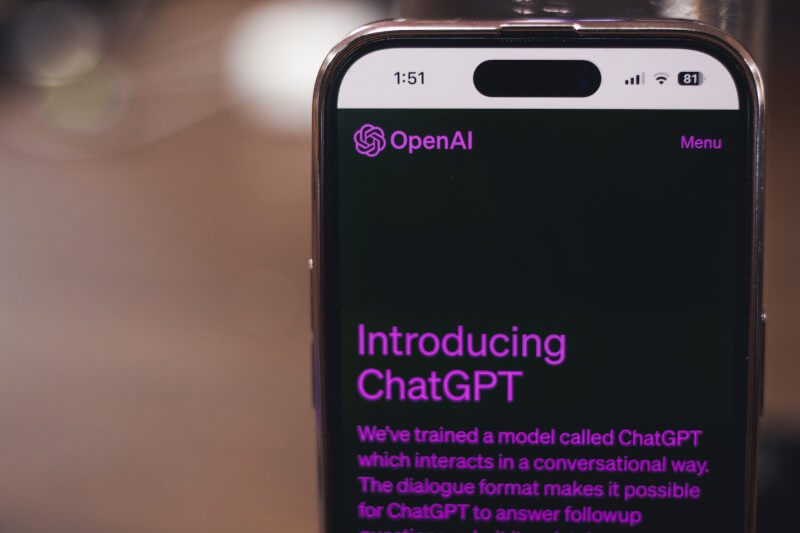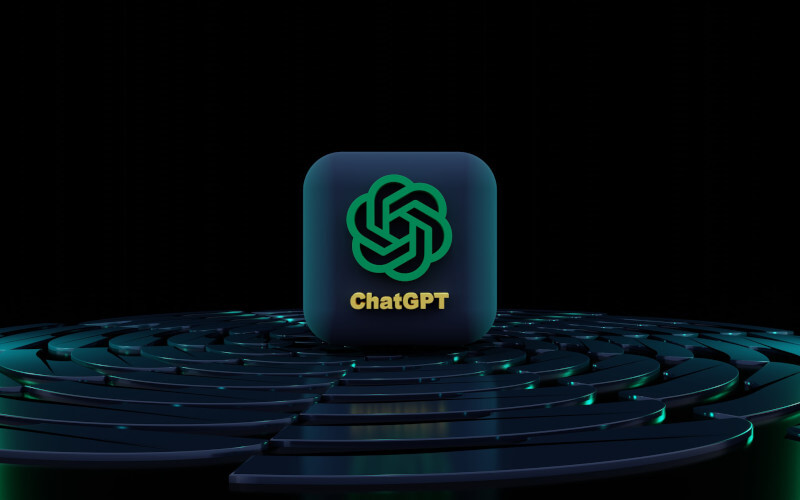If you work in digital marketing and have used Twitter in the last year, you know that all anyone can speak about is artificial intelligence and content marketing. Tweet after tweet explains why ChatGPT is the next big thing in article creation and how it will eventually make human writers obsolete. But, really, you guys! Yes, AI is here to stay, and there are ways you can use it in your content strategy to improve it. To replace human authors, though? carrying out your complete content marketing plan? Nope. Despite what you may have seen or heard on social media, artificial intelligence will not replace content marketing anytime soon, if ever. Why is it the case?
Why Do Some Fear That AI Will Rule The World?
AI content marketing solutions like ChatGPT can do things that we puny humans simply can’t, like sifting through massive amounts of online data in a matter of seconds and generating narrative content that reads like it was written by a human.
My Thoughts on ChatGPT in Comparison to the Competition
OpenAI claims that the tool improves in intelligence and ability to follow complicated directions with each new release. ChatGPT 4 (the latest version), according to the company’s president Greg Brockman, can even prepare tax returns, a chore I think we can all agree we’d be happy to unload. Some examples of how authors are putting ChatGPT to use:
- Recognising the context of a discussion
- Making blog post blueprints
- Making up fresh concepts for blog titles and posts
- Creating blog post introductions is a good place to begin.
- An approach to research that involves breaking down difficult topics
- And, sure, full-length article and press release writing (though, as you may have guessed, we don’t recommend doing this).
That’s not to imply we think ChatGPT is useless or worthless, though. The reverse is true, in reality. However, AI in content marketing is a supplement too, rather than a replacement for, human authors and reputable companies that provide original, engaging material. If you try to manipulate search engine rankings in any way, you are asking for trouble with the major search engines. Using AI for the entire writing and publishing process is included. Here is an example shown at this year’s SMX Munich. Here are four major reasons why AI won’t soon replace human content strategists:
What Content Marketers Need Most That AI Can’t Provide
Everything that is created by an AI-powered content marketing tool is derivative of something else. Nothing that AI can come up with is truly novel, no matter how large a dataset it can mine and analyse. What about clients? They want brands to have fresh ideas and be credible sources of information.
Seventy-six percent of businesses claim they directly engage consumers and clients through thought leadership; additional stakeholders they name include employees, investors, media, and the general public. When you remove the face — and the actual, human brain — behind the opinion, you risk losing the connection with your audience which no business wants to risk. Your people are what establish your company’s opinions on topics, events, trends, social issues, and more.

Most of the buyer personas that agencies help you make…suck. This is the topic of one of my favourite posts written by the Marketing Insider Group. They have nothing to do with real motive or action and are therefore arbitrary. However, buyer personas have become an industry buzzword. If I approached ChatGPT for a piece to write on them, I doubt they would give me this assessment. Let’s get one thing out of the way: ChatGPT can be hilarious. However, this is usually not done on purpose.
Many examples have shown that AI fails to hit the mark when it comes to humour, such as the one below: “It’s important to not blindly follow advice, even if they are a wizard.” Despite its undeniable progress, AI still has significant limitations when it comes to comprehending and acting upon human language. And if it can’t handle jokes in general, it’s not going to get the subtle irony and humour that are the hallmarks of entertaining business material.
Telling Stories for Brands
By sharing narratives about our work (and why it’s important), we can build rapport with our target audience and strengthen our brand. Each company that engages in this form of advertising must come up with its distinctive backstory to stand out from the crowd.
ChatGPT, however, is limited to comprehending the opinions of others and not your vision for how you would like your brand to be presented. Your company’s founders, leaders, and human employees can convey that message in a way that a computer programme never could.
True stories move us. They are meant to make the viewers or readers feel something. Although AI-generated information may be extremely useful, it cannot have or share a human experience. Intangible “this is what we’re all about” messages, such as those designed to share your mission, highlight client success stories, provide background on your team and expertise, and so on, cannot be generated with a ChatGPT query.
Empathy
I have discussed the paradox of artificial intelligence, which states that the more we rely on AI, the more we will want to engage in human interaction. This is true both in real life and, perhaps more so, in the realm of written expression. Putting yourself in the shoes of your target audience is a crucial part of content marketing. It’s a crucial part of emotional intelligence, which is increasingly prized in brands. 75% of consumers say they only consider brands that can prove they know what’s best for their business.
Nearly three-quarters of buyers, according to the survey results, say they prefer businesses that best exhibit awareness of their company’s unique demands. In addition, a worldwide study on brand EQ indicated that the brands with the greatest EQ not only connect with customers more readily but also generate more money and expand more rapidly.
In other words, the effectiveness of your firm as a whole is affected by your ability to connect with your target audience on an emotional level through your marketing efforts. Content marketing solutions powered by artificial intelligence won’t be able to connect with clients on an emotional level, no matter how “smart” they get. In its own words, ChatGPT will insist, “I don’t have feelings or emotions as humans do.” Stick with human creators that can feel what their audience is feeling if you want to evoke emotion and exhibit empathy in your work.
What Search Engine Results Mean
What Google thinks of a trend is the single most crucial factor for content marketers to consider. Why? Because the majority of people find websites through organic searches, and because Google controls 90% of the search engine market.
If Your Content Doesn’t Appear in Search Engine Results, No One Will Ever See It
It’s a big thing that Google pays attention to AI-generated material and gives it a different ranking than human-created stuff. Google’s Senior Webmaster Analyst John Meuller has even gone on record saying that the search giant treats AI-generated content the same manner as spam because it goes against their criteria. Plus, spam. Google downgrades or removes the page from its search results. Google’s most recent official recommendations are available here.
Our advice has been constant for many years when it comes to content that is generated automatically. We do not allow the use of any automated system, including AI, to produce material to alter its position in search engine results.
The guidelines continue by saying it’s acceptable to use automation for list-making and other mundane tasks like generating weather and sports reports. So, what I’ve learned is to employ AI to streamline the study process. Put real people to work crafting the copy!
The Lesson: Artificial Intelligence-Powered Content Marketing Has Value, But It’s Not Enough

If you’ve been keeping up with the social media argument over ChatGPT and AI in content marketing, you know that most people regard it as either excellent or evil, with no between ground. However, there is a middle ground: making full use of ChatGPT while still acknowledging the indispensability of human-created, empathic, customer-centered content. The brands whose content strategy manages to strike this equilibrium are the ones most likely to see their efforts bear fruit in the years to come.
ChatGPT’s efficiency makes it seem like a viable alternative to creating all kinds of content, especially if you’re feeling overwhelmed by the pressure to produce ever-more-impressive pieces. More than 70% of businesses outsource content generation because of this very issue. Every week for a year (or more), Marketing Insider Group’s team of skilled writers and SEO specialists will provide you optimised, publish-ready content.





